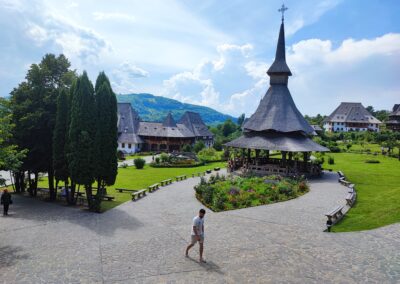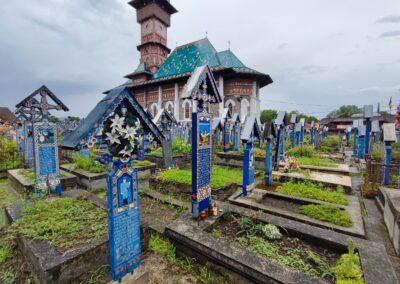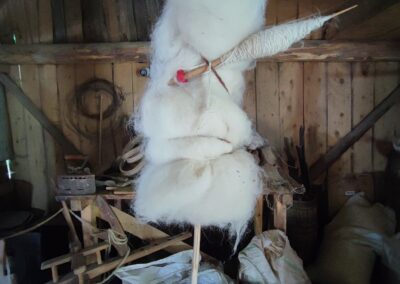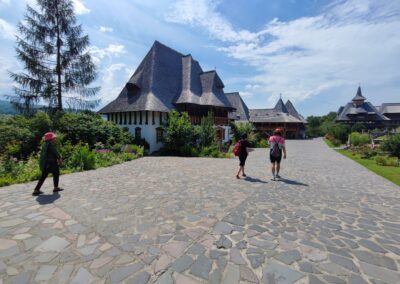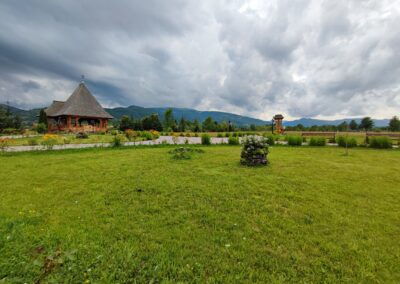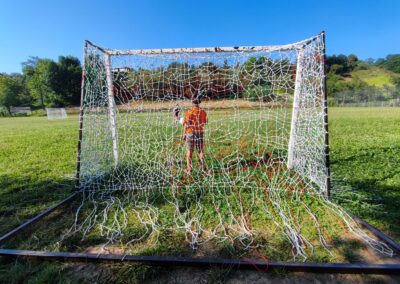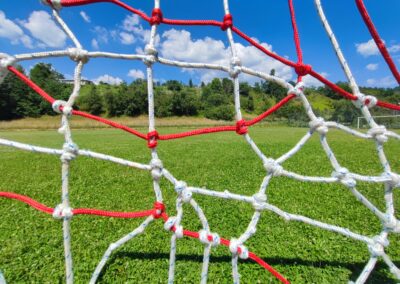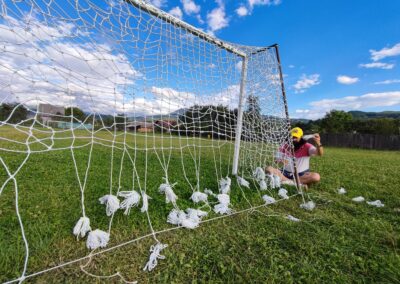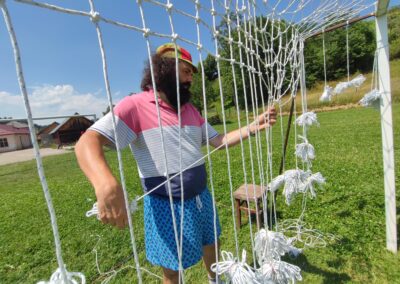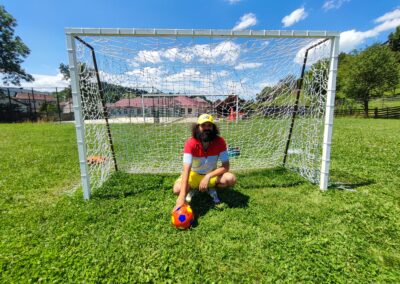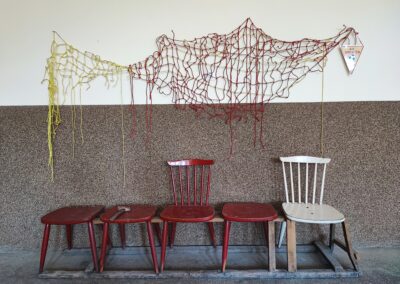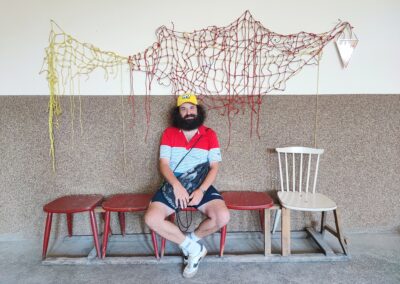Željko Beljan
Željko Beljan (Croatia, Zagreb) graduated from the Department of Animated Film and New Media at the Zagreb Academy of Fine Arts in 2021. Delving into the phenomenon of handicraft and its role in contemporary art practices, he explores textile and craftwork techniques as artistic media. Beljan also researches the connections between manual labor and amateur or hobbyist sports while encouraging audience participation in artwork creation. He was a finalist of the Radoslav Putar Award in 2023 and a WHW Akademija alumnus of 2022. Since 2011, Beljan has actively contributed to group exhibitions in Croatia and abroad, alongside realizing several solo exhibitions.
Maramureș Residency
20 June – 20 July

About Săcel Residency
During my residency in Maramureș, I had the chance to explore the region’s traditional crafts. Together with other artists, I visited several local artisans to learn about their techniques and practices. One visit was to Grigore Țulean’s woodworking workshop in Săcel, where we observed the process of creating wooden items. This was relevant to my artistic practice, which involves working with wood. We also visited local neighbors who showed us their collections of traditional costumes, which we tried on. I purchased a traditional scarf from one of them for an installation for the exhibition in Vienna.
In Borșa, our group appreciated the natural scenery and attended a traditional music festival, which showcased local culture and heritage. After visiting the monastery in Bârsana, we stopped by Breb, known for its craftsmen and artisans. There, we met Mrs. Maria, who showed us the wool spinning process, providing insight into another aspect of traditional craftsmanship. We also visited woodworkers who make wooden roof tiles and an artisan who crafts baskets. A visit to the Mecles family’s mill in Săcel expanded our understanding of local artisanal practices. Additionally, touring several monasteries and the famous Merry Cemetery enhanced our appreciation of the region’s historical and cultural context. An informative workshop on sustainable material dyeing and conservation, led by Dr. Florica Zaharia and Irina Petroviciu, added to our understanding of traditional crafts and their modern applications. A visit to Sighetu Marmației, including The Memorial of the Victims of Communism and The Elie Wiesel Museum, deepened our understanding of the region’s complex history.
Throughout the residency, I worked on my ongoing project “3 corners = 1 penalty,” creating a site-specific installation featuring handmade macramé football goal nets on the playground and a friendly match as part of the inauguration of the work. This match took place after the opening at the Cultural Center in Săcel on July 14th. The event was well attended and involved many local children and young people. The installation is permanent, meaning it remains for use by the community.
The AFAR Network project is co-funded by the European Union: ”Views and opionions expressed are however those of the autohor(s) only and do not necessarily reflect those of the European Union. Neither the European Union nor the granting authority can be held responsable for them.”

